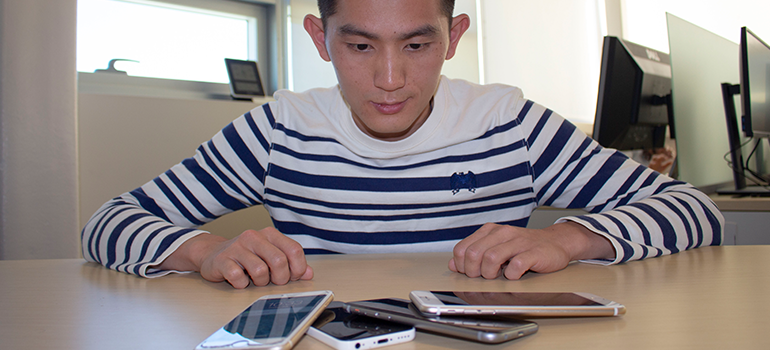Since 1987, the total accumulated volume of mobile phones thrown out in China exceeds 3.33 billion units.

The trashed phones will result in over 100-thousand tons of high-tech minerals by 2035.
New research suggests various approaches to address this growing problem.
UBC Okanagan visiting international student Pengwei He used product life cycle analysis to evaluate the full “cradle to grave” lifespan of mobile phones in the Chinese market.
“Understanding the whole process gave us an unique perspective on where we stand today and where we are headed when it comes to mobile phone lifespans and disposal” explains He.
He works in the Lifecycle Management Laboratory at UBC Okanagan’s School of Engineering with professors Kasun Hewage and Rehan Sadiq.
His research was conducted in China which is the world’s largest mobile producing and consuming country.
Much of the existing research regarding waste mobile phones has focused on the results of the disposal of phones and their ensuing environmental impact. This new research goes several steps further by analyzing existing data and establishing recommendations that call for new ecologically-minded phones and improving recycling rates.
“The challenge of what to do with our ever-increasing mobile phone waste isn’t going away” says He. That challenge is especially true in China which is the world’s largest mobile phone producer and consumer.
China accounts for 1.3 billion of the world’s 7.08 billion mobile phone subscriptions.
According to He, electronics producers and recyclers could recycle more than 15,290 tons of high-tech minerals if the right legislative and technical incentives were in place. Furthermore, he points out that China compared to other developed countries needs to improve its management and development system for ever-increasing electronic waste.
“There exists a real opportunity for China to spearhead change not just at home but around the world” says He.
Other recommendations from the research include: establishing high-tech mineral databases to track and investigate consumer behaviour, funding research and development in the areas of dismantling waste electronics, developing ecological product designs and promotion of recycling programs for the public.
“The demand for the latest and greatest smartphone isn’t going away, but a multi-pronged approach to building and recycling mobile phones would have an immense impact both economically and environmentally” says He.
He will spend the next two years at UBC Okanagan’s Life Cycle Management Laboratory collaborating with industry and government stakeholders to develop new approaches to sustainability, resource value and environmental performance assessments.
His research was published in the Journal of Cleaner Production with contributions from the Chinese Ministry of Land and Resources, Central South University in China and the University of Queensland in Australia.
For more information on this and other exciting research happening at UBC Okanagan, contact visit the School of Engineering News page.






